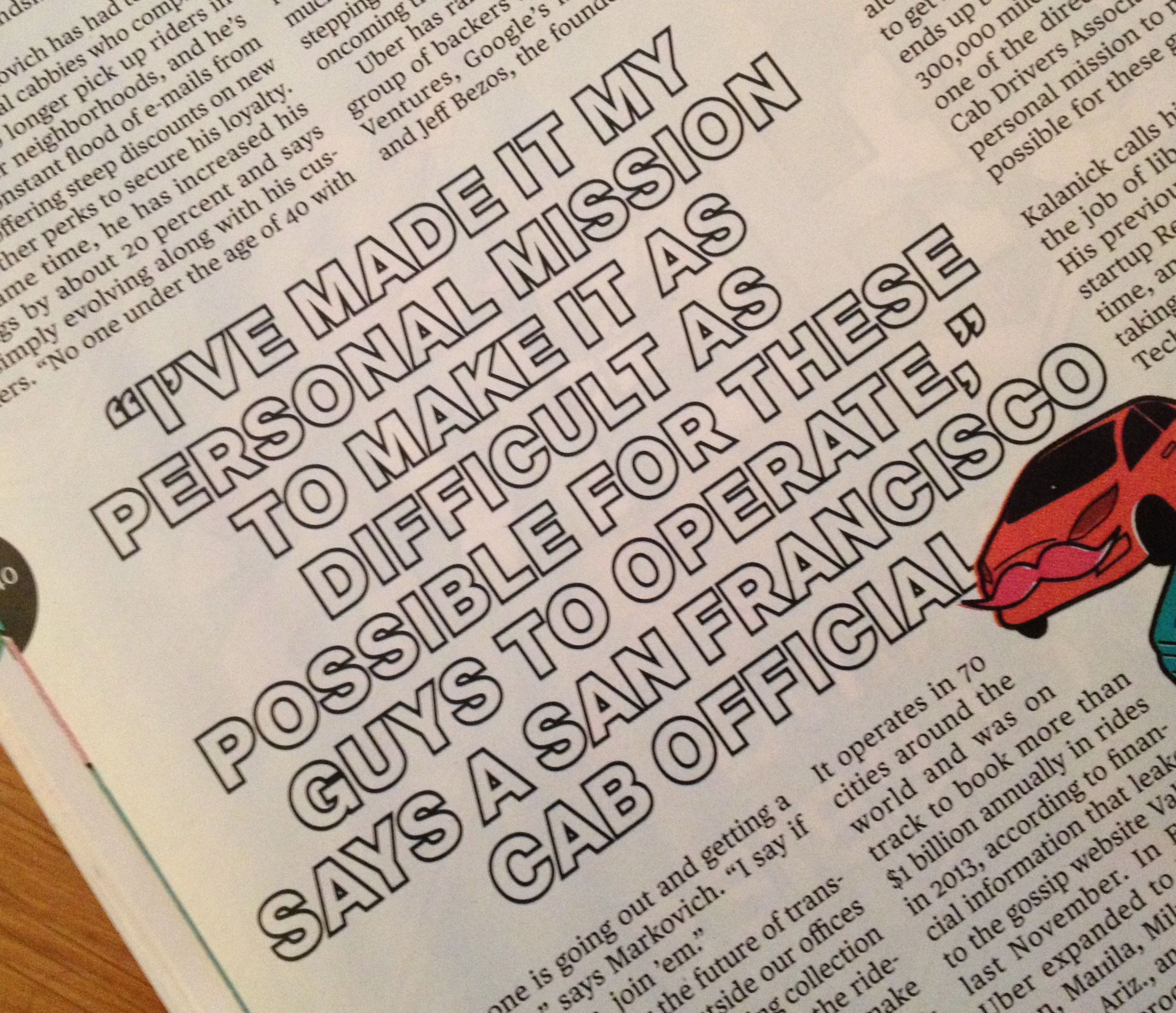 The latest Bloomberg Businessweek documents the efforts of entrenched interests to block innovation in travel.
The latest Bloomberg Businessweek documents the efforts of entrenched interests to block innovation in travel.
There’s a battle for the future of transportation being waged outside our offices and homes. Uber and a growing collection of well-funded startups, such as the ride-sharing service Lyft, are trying to make getting a taxi as easy as booking a reservation on OpenTable (OPEN) or checking a price on Amazon.com (AMZN)—just another thing you do with your smartphone. Flush with Silicon Valley venture capital, these companies have an even grander ambition: They want to make owning a car completely unnecessary. They’re battling each other, city regulators, entrenched taxi interests, and critics who claim they are succeeding only because they run roughshod over laws meant to protect public safety. “Being out in front of the taxi industry, putting a bull’s-eye on our back, has not been easy,” says Travis Kalanick, the 37-year-old chief executive of Uber. “The taxi industry has been ripe for disruption for decades. But only technology has allowed it to really kick in.” …
… Uber has managed to become one of the most loved and hated startups of the smartphone age. Its customers rave about the reliability and speed of the service even as they bitterly complain about so-called surge pricing, the elevated rates Uber charges during hours of high demand. Uber has also been blocked from operating in several markets, including Miami and Austin, Tex., by regulators out to protect the interests of consumers or entrenched incumbents, depending on whom you ask. In Boston and Chicago, taxi operators have sued their cities for allowing unregulated companies to devalue million-dollar operating permits. Things grew especially heated recently in Paris, when incensed taxi drivers shut down highway exits to the main airports and gridlocked city traffic.
Kalanick calls the cab industry a “protectionist scheme.” He says these protests are not about the drivers but cab companies “that would prefer not to compete at all and like things the way they are.”
If you need any more proof that the cab companies are more interested in protecting their turf than in serving their customers, check out the pulled quote highlighted above. Of course, these arguments against entrenched business interests ought to be no surprise to those who have followed North Carolina taxi debates.


